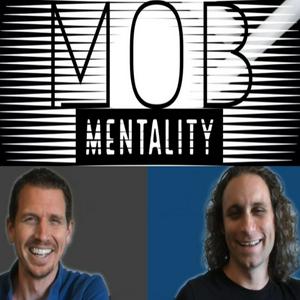Building Better Products Together: Henrik Ståhl on Mob Programming, MVPs, and Agile Leadership
In this episode of the Mob Mentality Show, we sit down with Henrik Ståhl, a product manager and advocate for collaborative software development, to explore how mob programming, MVPs, and agile leadership can reshape the way teams build products.
Henrik shares a unique product manager perspective on mob programming—why it’s more than just a coding practice and how it becomes a powerful tool for communication, knowledge sharing, and true collaboration across teams. We dive into what happens when product managers actively join mob sessions, the unexpected benefits for decision-making, and how it reduces waste and rework.
We also tackle one of the most misunderstood concepts in product development: the MVP (Minimum Viable Product). Henrik explains why many teams fall into the trap of either shipping low-quality “minimums” or overengineering “full products,” and what viable should really mean. You’ll hear insights on how sustainability, scalability, and learning fit into the MVP conversation—whether you’re at a large enterprise or an early-stage startup.
Finally, we unpack the infamous phrase “Move Fast and Break Things.” Henrik reframes the idea, showing how moving fast doesn’t mean sacrificing quality or creating chaos, but instead building the right contingency plans, embracing adaptability, and ensuring that speed leads to sustainable outcomes rather than long-term failures.
If you’ve ever wrestled with questions like:
How can product managers contribute directly in mob programming?
What does “viable” really mean in MVP?
How do you balance moving fast with building lasting, maintainable products?
How can teams avoid rework, miscommunication, and wasted effort?
…this episode is packed with practical takeaways and perspectives you can use right away.
🎙️ Listen in to learn how to build better products together—with less blame, fewer silos, and more shared ownership.
📌 Topics Covered:
Mob programming from a product manager’s perspective
The real meaning of MVP and why “Minimum Viable Whatever” fails
Rethinking “Move Fast and Break Things” for sustainable speed
Communication, collaboration, and continuous improvement in agile teams
Knowledge sharing, reducing waste, and eliminating silos
Video and Show Notes: https://youtu.be/JCZcJ6xT7-8


